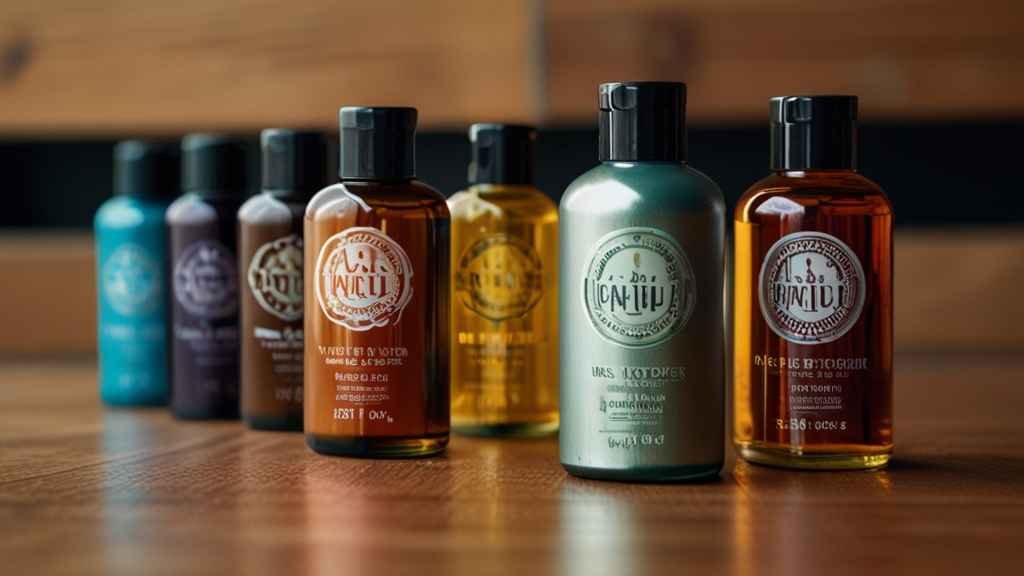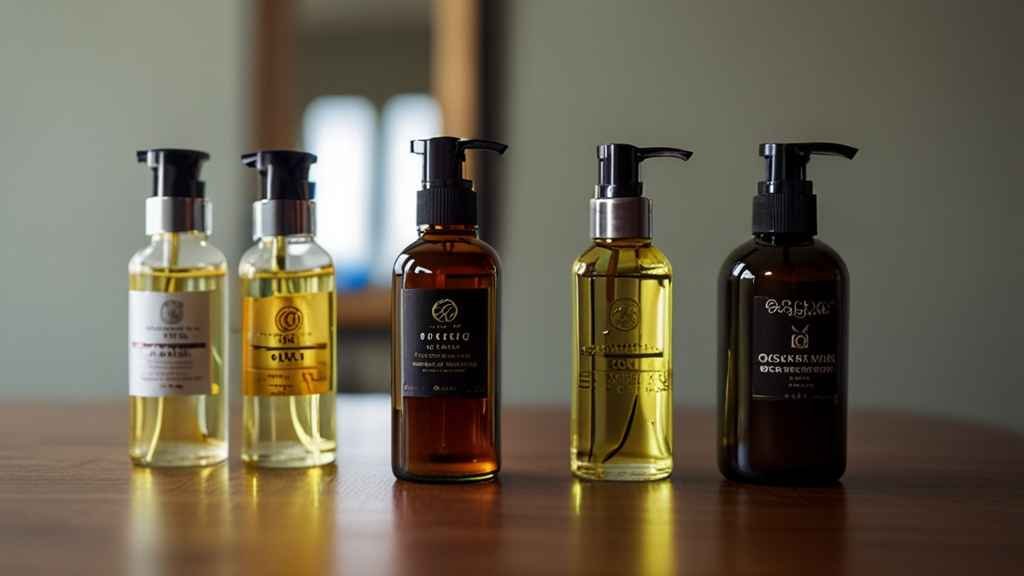High porosity hair is a unique hair type with cuticles that are either raised or damaged, allowing moisture to enter quickly but escape just as fast. This makes it difficult for the hair to retain moisture, leading to dryness, frizz, and breakage. If you have high porosity hair, you may already be familiar with the constant battle to keep your locks hydrated. One of the key steps in managing this hair type is selecting the right products, especially oils.
Not all oils are suitable for high porosity hair. While some can nourish and seal in moisture, others can actually exacerbate the problem, making your hair more prone to dryness, tangling, and breakage. In this expanded guide, we will take an in-depth look at the worst oils for high porosity hair, explaining why they don’t work well, and suggesting alternatives that will keep your hair healthy and manageable.
Understanding High Porosity Hair
Before diving into which oils to avoid, it’s important to understand what it means to have high porosity hair. Porosity refers to how well your hair absorbs and retains moisture, and it is typically categorized into three types: low, normal, and high porosity.
- Low Porosity Hair: The cuticle layer of the hair is tightly closed, making it difficult for moisture to penetrate.
- Normal Porosity Hair: The cuticle is slightly raised, allowing for balanced moisture absorption and retention.
- High Porosity Hair: The cuticle is highly raised or damaged, which allows moisture to enter easily but escape quickly, resulting in dry, frizzy, and often fragile hair.
High porosity hair can result from genetics, chemical treatments (like coloring or relaxing), heat styling, or environmental factors such as sun exposure or pollution. The open cuticle layers in high porosity hair mean that it needs extra care to retain moisture and maintain a healthy appearance.
Now, let’s explore the oils you should avoid if you have high porosity hair and why they can be harmful.
Explore: 7 Best natural oils for curly hair

1. Coconut Oil: The Protein Problem
Coconut oil is a favorite in the natural hair care community because of its ability to penetrate the hair shaft and reduce protein loss. However, for high porosity hair, coconut oil can often do more harm than good. The issue with coconut oil lies in its protein-retaining properties. High porosity hair typically has more protein than it needs because its cuticles are already damaged. Adding more protein can lead to protein overload, which makes the hair stiff, brittle, and prone to breakage.
Additionally, coconut oil can form a barrier on the hair shaft, preventing moisture from penetrating. Since high porosity hair struggles to retain moisture, applying coconut oil may leave the hair even drier in the long run.
Why Avoid It: Causes protein overload and blocks moisture from entering the hair shaft.
Better Alternatives: Oils like argan oil and avocado oil are much lighter and offer more balanced hydration without the risk of protein overload. Argan oil, in particular, is rich in essential fatty acids and vitamin E, which are great for moisturizing and protecting high porosity hair.
Explore: Coconut Oil for Curly Hair: The Complete Guide
2. Olive Oil: Too Heavy for High Porosity Hair
Olive oil is renowned for its nourishing properties, especially for dry or damaged hair. However, its thick and heavy consistency makes it less than ideal for high porosity hair. Olive oil tends to sit on the surface of the hair rather than being fully absorbed, leading to a greasy or weighed-down feeling. This can be especially problematic for high porosity hair, which needs moisture to be absorbed deep into the hair shaft rather than coating the surface.
Olive oil also tends to attract dirt and dust, which can cause buildup over time. This buildup can block moisture and nutrients from penetrating the hair shaft, further exacerbating the dryness that high porosity hair already faces.
Why Avoid It: Too thick to penetrate hair, leading to greasy buildup and weight.
Better Alternatives: Jojoba oil and grapeseed oil are much lighter and easier to absorb, making them better suited for high porosity hair. Jojoba oil, in particular, mimics the scalp’s natural oils, making it excellent for hydrating and sealing moisture without creating an oily residue.
3. Castor Oil: The Buildup Culprit
Castor oil is often used to promote hair growth and strengthen hair strands. However, for high porosity hair, its thick, viscous texture makes it difficult for the hair to absorb. This leads to a sticky buildup that can weigh the hair down and make it feel greasy. Castor oil can also clog hair follicles, inhibiting new hair growth and causing scalp issues.
Another issue with castor oil is its high viscosity, which makes it challenging to wash out of the hair. This can cause residue to build up on the scalp and hair, further blocking moisture and nutrients from being absorbed.
Why Avoid It: Heavy and sticky, causing buildup and blocking moisture absorption.
Better Alternatives: Sweet almond oil or hemp seed oil are better choices for high porosity hair. These oils are lightweight, easily absorbed, and packed with essential nutrients like omega-3 and omega-6 fatty acids, which help to hydrate and nourish the hair without clogging follicles.
4. Palm Oil: The Thick and Sticky Problem
Palm oil is often used in hair care products because of its conditioning properties, but it’s far too heavy for high porosity hair. Its dense nature can leave a greasy film on the hair and scalp, which blocks moisture rather than sealing it in. Additionally, palm oil can cause significant buildup over time, making hair feel heavy and limp.
On top of its unsuitability for high porosity hair, palm oil has environmental concerns associated with it. The production of palm oil has been linked to deforestation, habitat destruction, and other environmental issues. So, avoiding palm oil in your hair care routine is not only beneficial for your hair but also for the environment.
Why Avoid It: Too thick for absorption and causes excessive buildup.
Better Alternatives: Marula oil and baobab oil are lighter, more sustainable alternatives that provide hydration and nourishment without leaving a greasy residue. They are also rich in antioxidants, which help protect high porosity hair from environmental damage.
5. Mineral Oil: Synthetic and Dehydrating
Mineral oil is often added to hair care products because it’s a cheap and effective way to add shine. However, mineral oil is a synthetic oil that doesn’t provide any nourishment to the hair. Instead, it forms a waterproof barrier around the hair shaft, which prevents moisture from entering. For high porosity hair that already struggles with retaining moisture, mineral oil can exacerbate the issue, leaving the hair dry, brittle, and prone to breakage.
Moreover, mineral oil tends to attract dirt and pollutants from the environment, which can accumulate on the scalp and hair, leading to further hair damage over time.
Why Avoid It: Blocks moisture from entering the hair shaft and can lead to dryness.
Better Alternatives: Shea butter and macadamia oil are much better options for sealing in moisture while providing essential nutrients that hydrate and protect the hair. These natural oils help repair the damaged cuticles of high porosity hair without the harmful effects of mineral oil.
Explore: Jojoba Oil for Curly Hair: Transforms Curly Hair Care
6. Sunflower Oil: Omega-6 Imbalance
Sunflower oil is often touted as a lightweight, non-greasy oil, which makes it seem like a good option for high porosity hair. However, sunflower oil is high in omega-6 fatty acids, which can create an imbalance in the scalp if used too often. An excess of omega-6 can block the absorption of omega-3, an essential fatty acid that nourishes and strengthens hair. Over time, sunflower oil can lead to buildup, leaving hair feeling greasy and weighed down.
Why Avoid It: Can create an imbalance in omega fatty acids and cause buildup.
Better Alternatives: Oils rich in omega-3, such as flaxseed oil, are better suited for high porosity hair. Flaxseed oil helps to balance the scalp’s natural oils and provides deep hydration to the hair, helping to seal in moisture and prevent dryness.
Additional worst oils for high porosity hair
Soybean Oil:
Soybean oil is rich in fatty acids but has a tendency to sit on the surface of the hair. Like mineral oil, it forms a barrier that can prevent moisture from penetrating the hair shaft. It’s also prone to causing buildup, making hair look dull and weighed down over time.

Lanolin:
Lanolin is a waxy oil derived from sheep’s wool, often used in heavy-duty moisturizers. While lanolin can provide a lot of moisture for certain hair types, it’s far too thick and heavy for high porosity hair. It can easily clog the scalp’s pores and cause buildup, leading to greasy, weighed-down hair.
Final Thoughts:
When caring for high porosity hair, it’s crucial to avoid oils that are too heavy, prone to causing buildup, or block moisture from entering the hair shaft. Oils like coconut oil, castor oil, and mineral oil may be popular, but they can worsen the dryness and damage that high porosity hair already experiences.
The best oils for high porosity hair are lightweight, easily absorbed, and nutrient-rich. Argan oil, jojoba oil, sweet almond oil, and flaxseed oil are great options that provide hydration without causing buildup or greasiness. These oils help seal the hair cuticle, locking in moisture and nourishing the hair from within.
Finding the right oil for your high porosity hair may take some experimentation, but with the right choices, you

